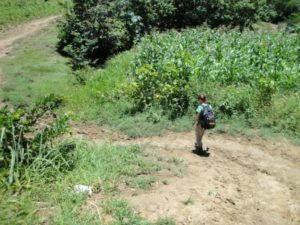When Henry David Thoreau observed over 160 years ago that “the mass of men lead lives of quiet desperation”[1], I am pretty sure he had no inkling of specific problems we struggle with in the 21st century. I mean, how could he possibly foresee the national emergency which is the epidemic of opioid addiction, or the increase in Western mortality rates due to suicide and other “deaths of despair”?[2] How would he, in the idyllic setting of Walden Pond, even contemplate the mass shootings in Aurora, or Sandy Hook, or San Bernardino, or now Las Vegas, to name but a few? It seems that desperate people have always done desperate things, whether in the 19th or 21st Centuries, and while the degree and tragic impact may vary wildly, there is no shortage of proof that despair is all around us even if we don’t see it in us. As sung so poignantly by Ray LaMontagne:
There’s a lot of things that can kill a man
There’s a lot of ways to die,
Yes and some already dead who walk beside me[3]
 What if the quality of a person’s life has more to do with the way or path in which he or she walks than it does any particular experience they have endured? There are many who have suffered all manner of tragedy, or been dealt exceedingly harsh challenges, but who nevertheless lead lives filled with joy, peace and hope instead of despair. What makes them different from the desperate masses?
What if the quality of a person’s life has more to do with the way or path in which he or she walks than it does any particular experience they have endured? There are many who have suffered all manner of tragedy, or been dealt exceedingly harsh challenges, but who nevertheless lead lives filled with joy, peace and hope instead of despair. What makes them different from the desperate masses?
Our Own Way
The prophet Isaiah wrote we all have strayed, “each one to our own way” (Isaiah 53:6). I recognize that tendency in myself, and it is not a good thing. If my own experience is any guide, my desperate circumstances inevitably arise from placing my self-interests above any other consideration when choosing to go in a particular direction, with little or no regard for God or the impact of my choice on others. Dealing with the resulting calamity or consequences becomes a struggle and burden that can wear a guy out. I gather from Thoreau and the Bible, as well as my various news sources, that I’m not the only one who has despaired beneath such burdens of my own making.
The Good Way
About 100 years after Isaiah, another prophet, Jeremiah, delivered this offer from the Lord:
This is what the Lord says:
“Stand at the crossroads and look;
ask for the ancient paths,
ask where the good way is, and walk in it,
and you will find rest for your souls. (Jeremiah 6:16)
Laying Our Burdens Down
For any soul struggling with despair, finding rest through walking in a good way seems like an offer not to be refused. It is echoed some 500 years later in the words of Jesus, who elsewhere claimed to be that way[4]:
“Come to me, all you who are weary and burdened, and I will give you rest. Take my yoke upon you and learn from me, for I am gentle and humble in heart, and you will find rest for your souls. (Matthew 11:29)
But the people to whom Jeremiah spoke said of the good way, ‘We will not walk in it.’(Jeremiah 6:16) Jesus, too, observed that “only a few find it” (Matthew 7:14). Why would I or some others continue leading lives of quiet desperation instead of walking in the road that leads to life? It’s hard to say, and the answers may vary. But the good news is that it not too late—we can choose even today to walk in the good way.
[1] Thoreau, Henry David. 1854, Walden; or, Life in the Woods, Boston: Ticknor and Fields.
[2] Anne Case and Angus Deaton, “Rising morbidity and mortality in midlife among white non-Hispanic Americans in the 21st century”, PNAS, vol. 112, no.49, 15078 (Dec. 8, 2015)
[3] Ray LaMontagne, “Empty” (Till the Sun Turns Black, RCA 2006)
